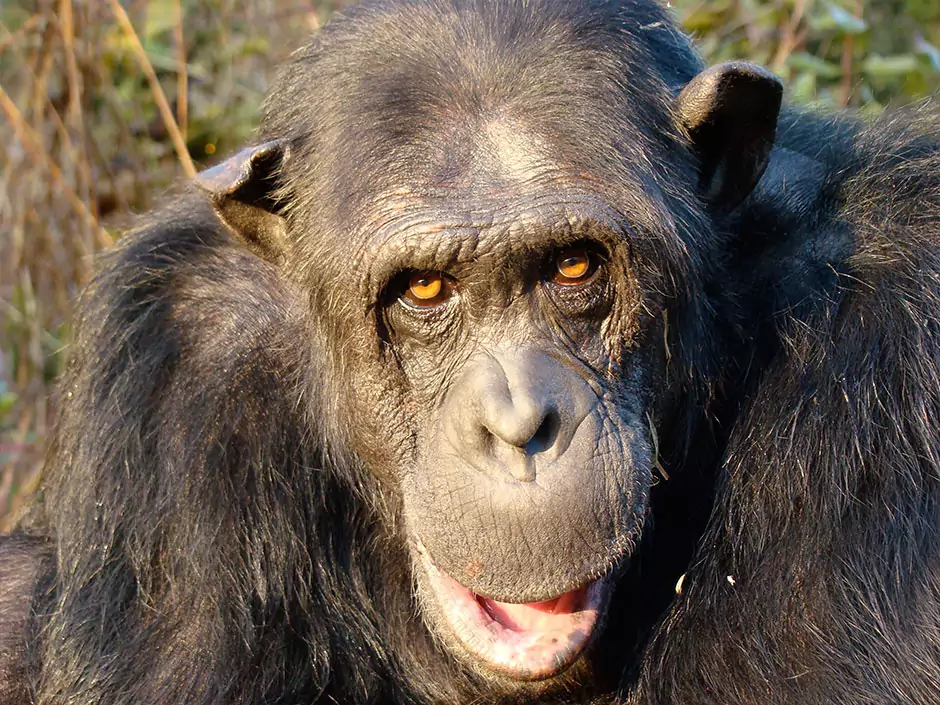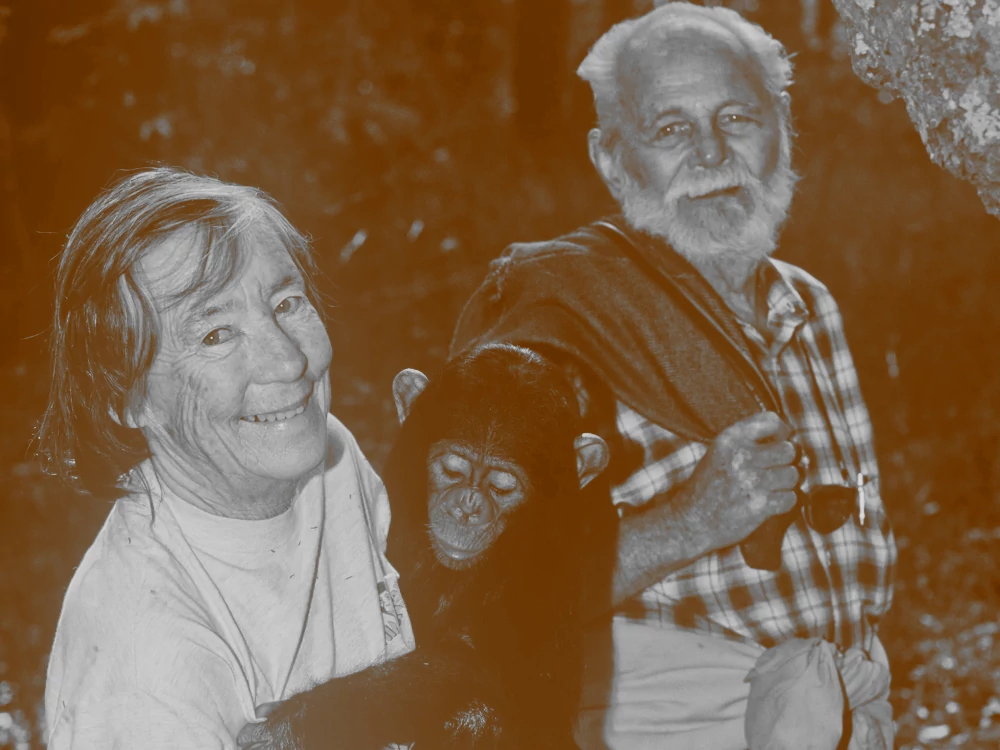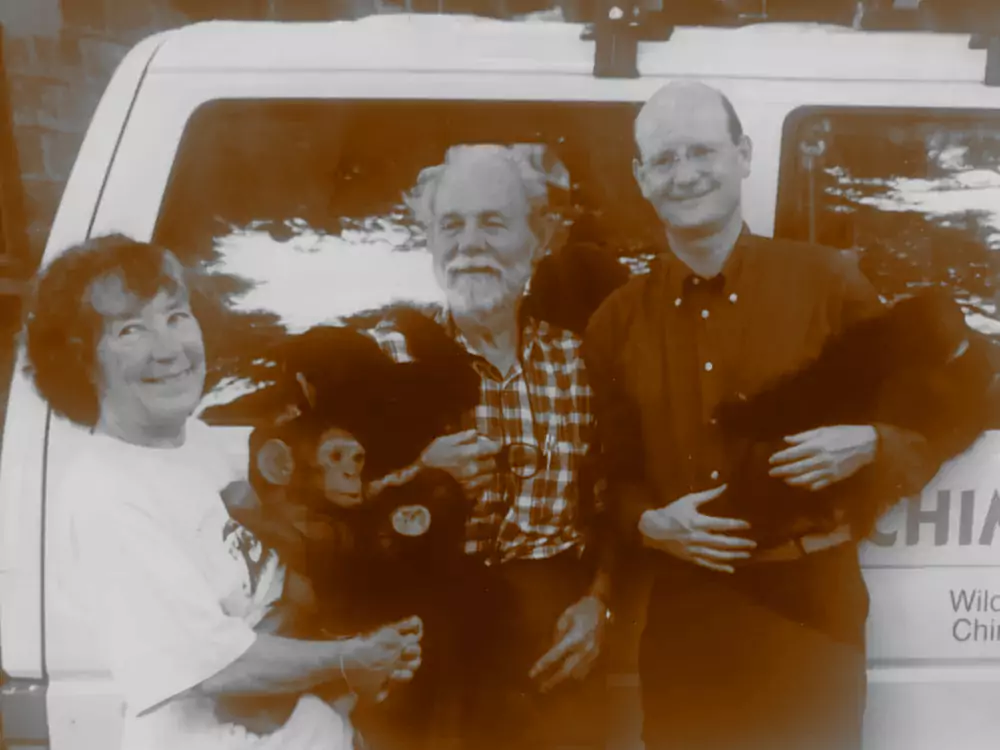Pal - the first chimpanzee orphan
David and Sheila Siddle run a cattle farm called Chimfunshi on the Kafue River in northern Zambia - the Copperbelt region - on the border with Congo in the 1980s.
CHIMFUNSHI means "The Place of Water" in one of the Zambian national languages, Bemba. An apt name for the terrain, which turns into a vast wetland every year during the rainy season.
In 1983, a game warden brings to the farm a badly injured baby chimpanzee that he had rescued from poachers and that no one gives any chance of survival. The Siddles spontaneously take in the little ape, name him Pal, and care for him day and night. Against all predictions, Pal survives - and lives on Chimfunshi to this day.

The Chimfunshi orphanage is born

Word spreads about the Siddles' success and their willingness to take in such emergencies. As a result, more and more chimpanzees and other wild animals arrive at Chimfunshi. Almost always, the animals have experienced terrible mistreatment. The chimps have been taken from illegal poachers; discovered at street markets; confiscated at customs as contraband; freed from shady zoos; or taken from private homes. They come from all over the world, and each animal needs intensive care.
The Siddles gain the recognition of famed primatologist Jane Goodall, who rescues Milla the chimpanzee from a bar in Tanzania in 1990 and brings the heavily alcohol- and nicotine-dependent animal to Chimfunshi. he withdrawal takes years. Today Milla is the grande dame of the station.
David and Sheila receive numerous honors for their dedication - including the Jane Goodall Award (1995), the Global 500 Award (2000), the Order of the British Empire (2001) and the PASA Circle of Compassion Award (2017).
The trust is established
Financially, however, the project quickly exceeded the Siddles' means.
In 1988, German entrepreneur Stephan Louis met the couple, saw their work, and founded the non-profit Chimfunshi e.V. in Hamburg in 1989 to support the Siddles' Chimfunshi Wildlife Orphanage. Since then, Chimfunshi has received significant support from Stephan and Sebastian Louis.
In 1995, at Stephan and David Siddle's initiative, the non-profit Chimfunshi Wildlife Orphanage Trust (CWOT) is founded in Zambia to give the sanctuary a long-term basis. CWOT becomes a founding member of the Pan African Sanctuary Alliance (PASA), the largest association of wildlife centers in Africa, established in Uganda in 2000.
Thanks to the financial support from Germany, Chimfunshi can be equipped with a basic staff. The grants enable the construction of outdoor enclosures and feeding buildings, as well as the provision of vehicles and machinery. Wells are installed to supply clean drinking water, houses for the staff are built, a school, an infirmary and an education center are constructed.
When David Siddle passed away in 2006, Sheila, along with the Board of Trustees, continue the chimpanzee conservation work and outreach to the local people. A management team is formed.

Chimfunshi continues to grow
In 2009, primatologist Innocent Chitalu Mulenga becomes General Manager of CWOT, the first Zambian to hold such a position.
n 2011, Stephan Louis, Chairman of the Board of Trustees, dies unexpectedly, and his brother Sebastian Louis takes over his function. He continues the project as Chairman of CWOT and Chief Executive Officer of Chimfunshi Germany. Under his leadership, Chimfunshi hires a full-time veterinarian in 2014, who cares for the annually growing animal population on Chimfunshi 24/7. In late 2021, Zambia's first wildlife veterinary clinic begins operations on Chimfunshi, providing care for both chimpanzees and local wildlife.
In April 2022, Sheila Siddle passes away at the age of 90. With her death, the founding couple has left Chimfunshi. Their mission to take in, care for and provide lifelong care to rescued chimpanzees from around the world continues.
The management team, the Trust and a newly added Executive Director, ecologist and primatologist Peggy Motsch, ensure that the spirit of Chimfunshi lives on in the spirit of David and Sheila, and that Chimfunshi continues to evolve and remain an example of humanity, conservation and animal welfare.
